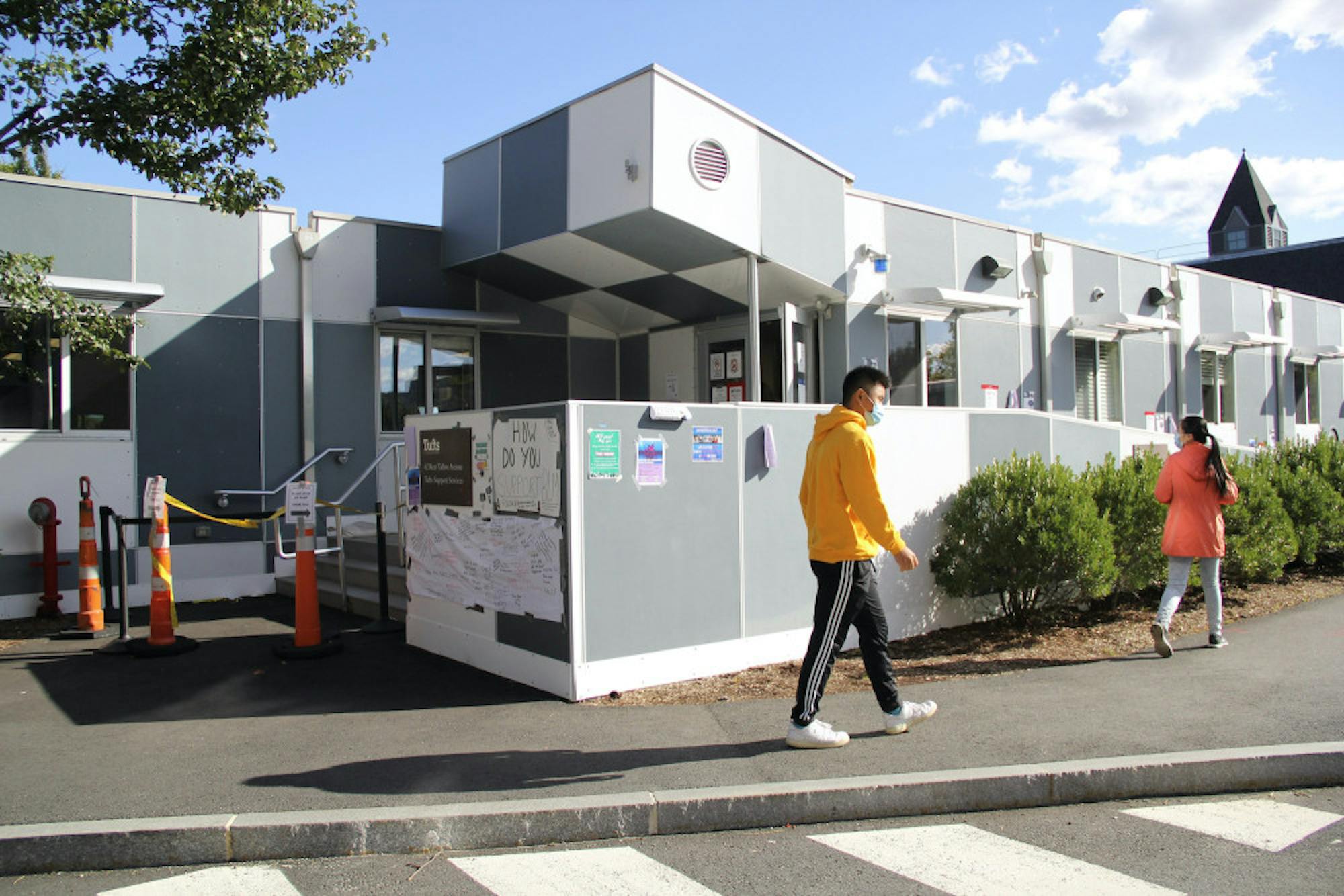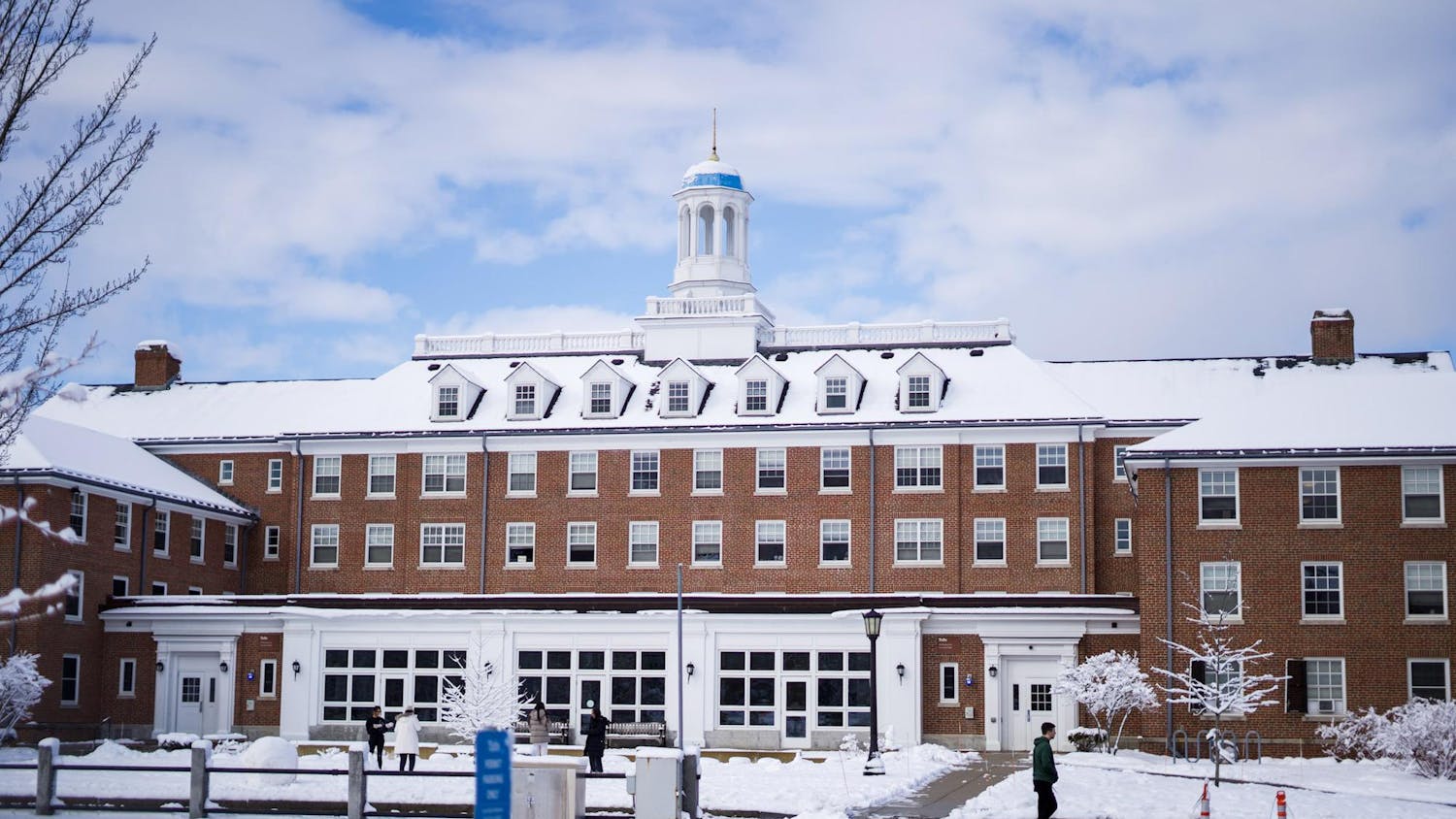Comprehensive testing, effective isolation and quarantine measures have been successful in slowing the spread and transmission of COVID-19 at Tufts, as university officials continue to take action against the ongoing pandemic.
Michael Jordan, the university's infection control health director, explained that a wide range of elements, including testing and education, have contributed to the absence of large outbreaks on campus.
“The results to date have been on the low end of expectations based on our modeling," Jordan wrote in an email to the Daily. "The University has undertaken an extensive education and social norms campaign to reinforce ... the need to adhere to the testing regimen and the importance of mask wearing, social distancing, good hygiene, and related behaviors."
One such educational effort,Healthy@Tufts, summarizes key behaviors, guidelines and policies for collective health this year. The program includes video modules that outline coronavirus protocols and strategies for online learning.
Michelle Bowdler, executive director of Health and Wellness Services, thanked students for adhering to COVID-19 health and safety measures prior to arriving on campus.
“We’re grateful that students took seriously the university’s request that they avoid situations that might put them at risk of contracting COVID-19 before arriving on campus, which has led to a low number of positive tests upon arrival,” she wrote in an email to the Daily.
Bowdler also expressed gratitude at the Broad Institute's ability to provide COVID-19 test results in a timely manner.
"We also have benefitted from the Broad Institute’s ability to turn around test results quickly. That has helped us to identify positive cases early on," she said.
The local research institute has partnered with over 100 colleges and universities to provide testing, with many results coming back within just 24 hours, according to itswebsite. The institute has also conducted over 415,000 tests for colleges and universities.
University President Anthony Monaco celebrated the success of Tufts' reopening plan thus far and recognized students' efforts to limit the spread of the virus.
“The biggest reason for the testing program’s good performance to date is the commitment of students — they’re taking all of this very seriously,"Monaco wrote in an email to the Daily. "So far, our community is doing what we need to do to keep each other safe, which I think speaks volumes about who we are.”
Junior Dash Wedergren indicated that he has seen overwhelming compliance with the university's health policies by the student body.
“Tufts students have been expectedly compliant with all COVID precautions. Positive social norms have developed around distancing and mask wearing and students seem united in a common mission to keep us on campus this semester,” Wedergren wrote in an electronic message to the Daily.
Christopher Sedore, Tufts’ vice president for information technology and chief information officer, explained that the university'sCOVID-19 Dashboard is a critical source of data for community members. The dashboard provides metrics on testing by school, including the number of tests conducted and unique positive individuals.
“We are committed to being transparent with our testing data and, at the same time, protecting the privacy of our students, faculty and staff," Sedore wrote in an email to the Daily.
He also noted that Tufts plans to continue providing testing data to the community through the rest of the semester.
However, despite early success, university leaders have continued to caution community members against an extensive spread of the virus.
“We are encouraged by the early results but we also realize that we must remain vigilant,” Jordan said.
Bowdler echoed Jordan's statement.
"Our results are only as good as our compliance, so we need everyone — students, faculty and staff — to continue to do everything they can to keep each other safe and healthy.”






